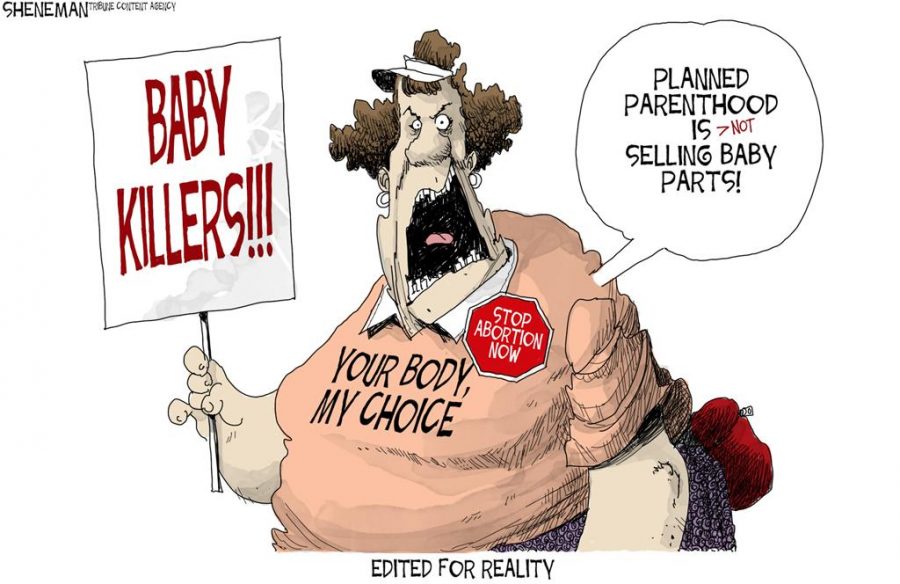Congress has put Planned Parenthood in timeout — deciding to freeze its funding after the House Judiciary Committee’s first hearing, “Planned Parenthood Exposed: Examining the Horrific Abortion Practices at the Nation’s Largest Abortion Provider.”
Sounds objective, right? Planned Parenthood probably would have protested this title — if the committee had invited the group to testify.
This is only the latest plot twist in the horror story, “Republicans Hate Planned Parenthood and Will Defund It at Any Cost.” What we previously dismissed as unfactual, unfounded rhetoric will now have significant repercussions on our nation’s health. All it takes is five minutes of research to know how much Planned Parenthood benefits our country, so why is Congress running at it like townspeople with pitchforks?
The freeze in funding is supposed to give Congress time to investigate claims that Planned Parenthood sold fetal tissue for profit. By doing so, Congress swallows the evidence and punishes the group without a fair case.
Furthermore, the vote freezing Planned Parenthood’s federal funding followed several hours of emotional floor speeches providing graphic descriptions of botched abortions. But how was this an objective representation of Planned Parenthood?
First-trimester abortions have almost no health risks. Also, Planned Parenthood cannot use its Title X funding toward abortions and can only use Medicaid funding in extreme cases, such as rape or incest. More so, abortions only accounted for 3 percent of Planned Parenthood’s services from 2013 to 2014.
The rest of its services go toward providing vital, necessary and affordable health care for women and men such as STI/STD testing and treatment, providing contraception, prenatal services, cancer screening and family planning practices, such as adoption referrals.
When the government freezes funding to Planned Parenthood, it isn’t reforming its abortion practices or protecting fetal tissue, but rather freezing access to these vital health services for the women who need it most.
Among the 20 million women in need of publicly funded contraceptive care, 77 percent were low-income adults and 23 percent were younger than 20.
There are 61 million U.S. women in their childbearing years — between 15 and 44. About 70 percent are at risk of unintended pregnancy. The number of women at risk of an unwanted pregnancy who were not using a contraceptive method is highest among 15- to 19-year-olds, at 18 percent.
Planned Parenthood averts an estimated 515,000 of unintended pregnancies each year, according to its “By the Numbers” fact sheet. It also averted an estimated 216,000 abortions through its contraceptive services each year.
For teens and young adults, access to the services Planned Parenthood provides can play a large role in educational prospects, as 30 percent of all female high school dropouts left school due to unintended pregnancies.
After graduation, an estimated 10 to 20 percent more women enrolled in college at age 21 as a result of expanded access to the pill during the 1970s. According to The National Campaign to Prevent Teen and Unplanned Pregnancy, these women were also one-third less likely to drop out within the first year, and enrollment in job training programs also increased by 15 percent.
Recent research has also determined that each year of delayed childbearing results in a 3 percent increase in weekly wages and a 9 percent increase in career earnings, even after accounting for differences in other background characteristics that could affect women’s earnings, according to The National Campaign.
Without Planned Parenthood, most of these women would be unable to access these resources. Seventy-nine percent of Planned Parenthood patients have incomes at or below 150 percent of the federal poverty level.
Freezing funding to Planned Parenthood isn’t a noble act that takes a critical look at where taxpayer’s dollars are going. It’s a biased, rhetoric-driven move that harms taxpayers.
To frame the freeze any other way is the truly “horrific” practice.


